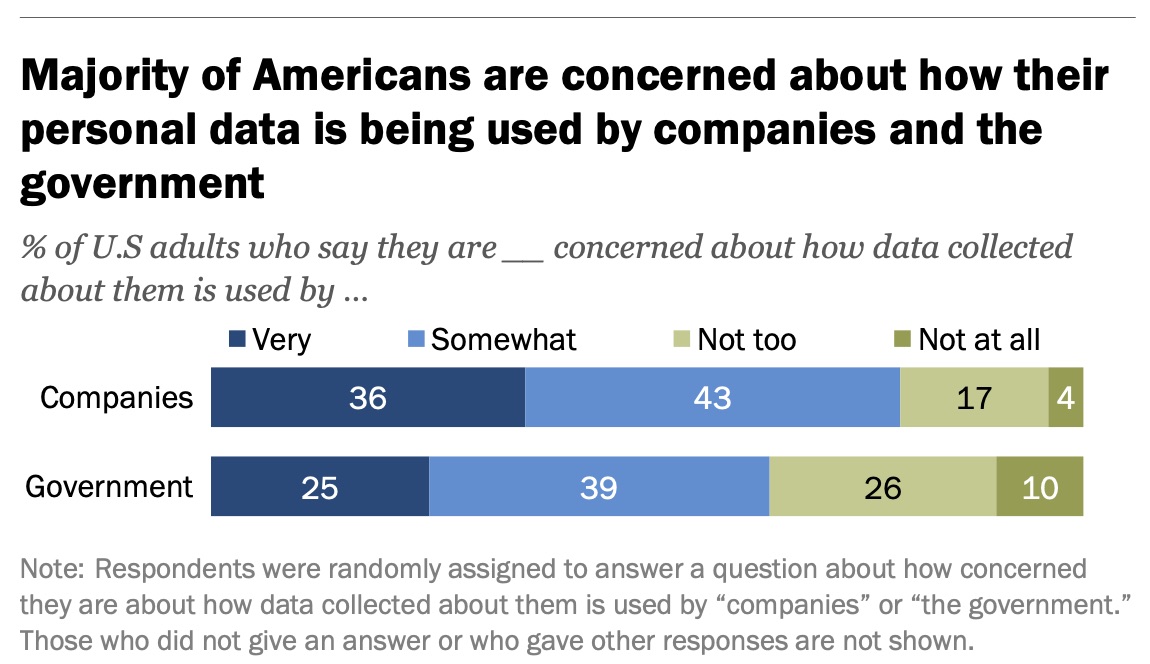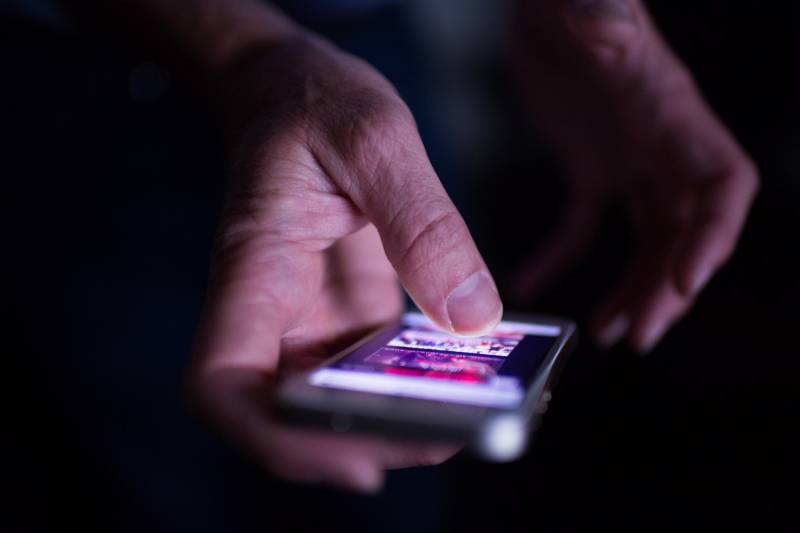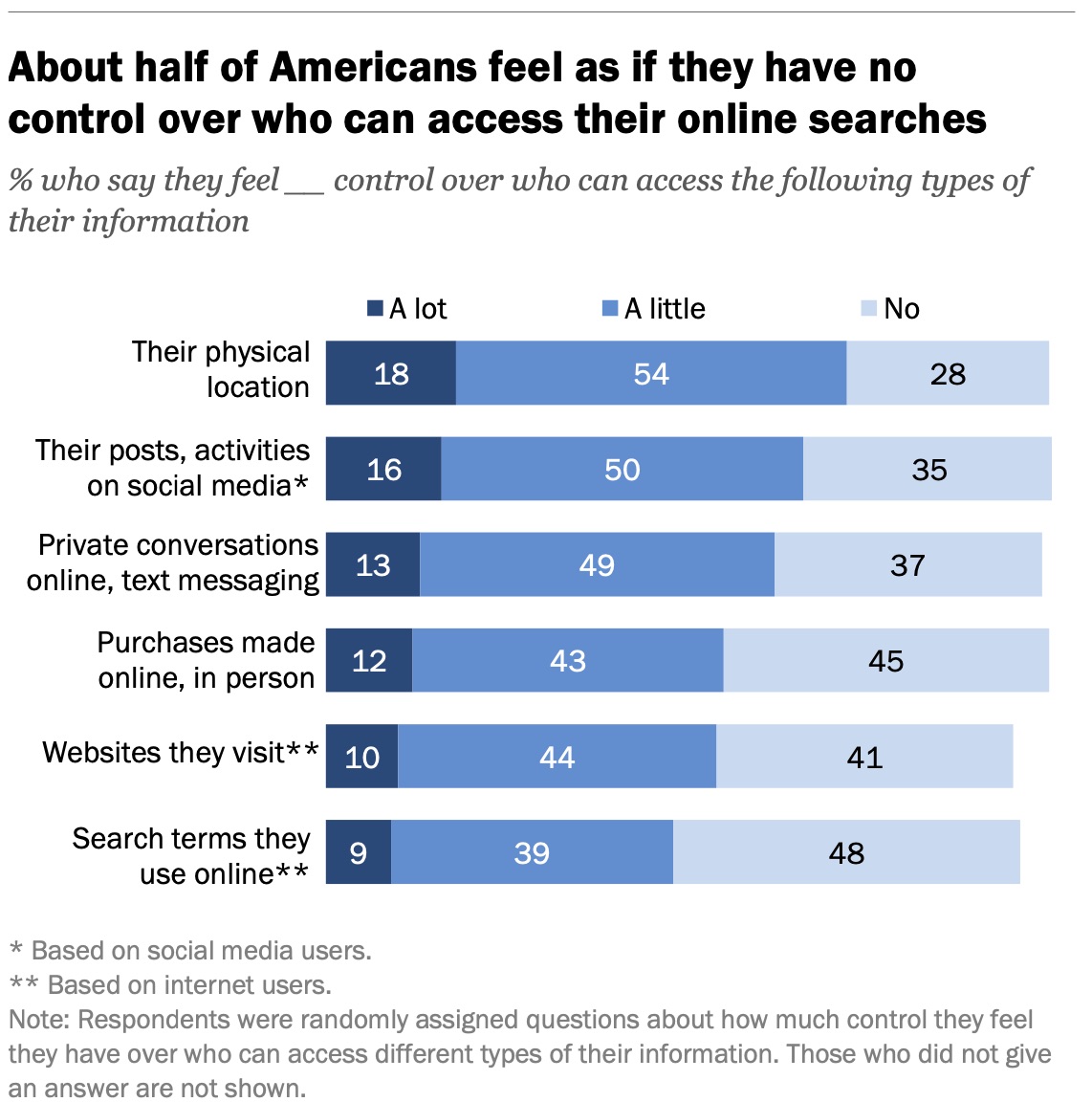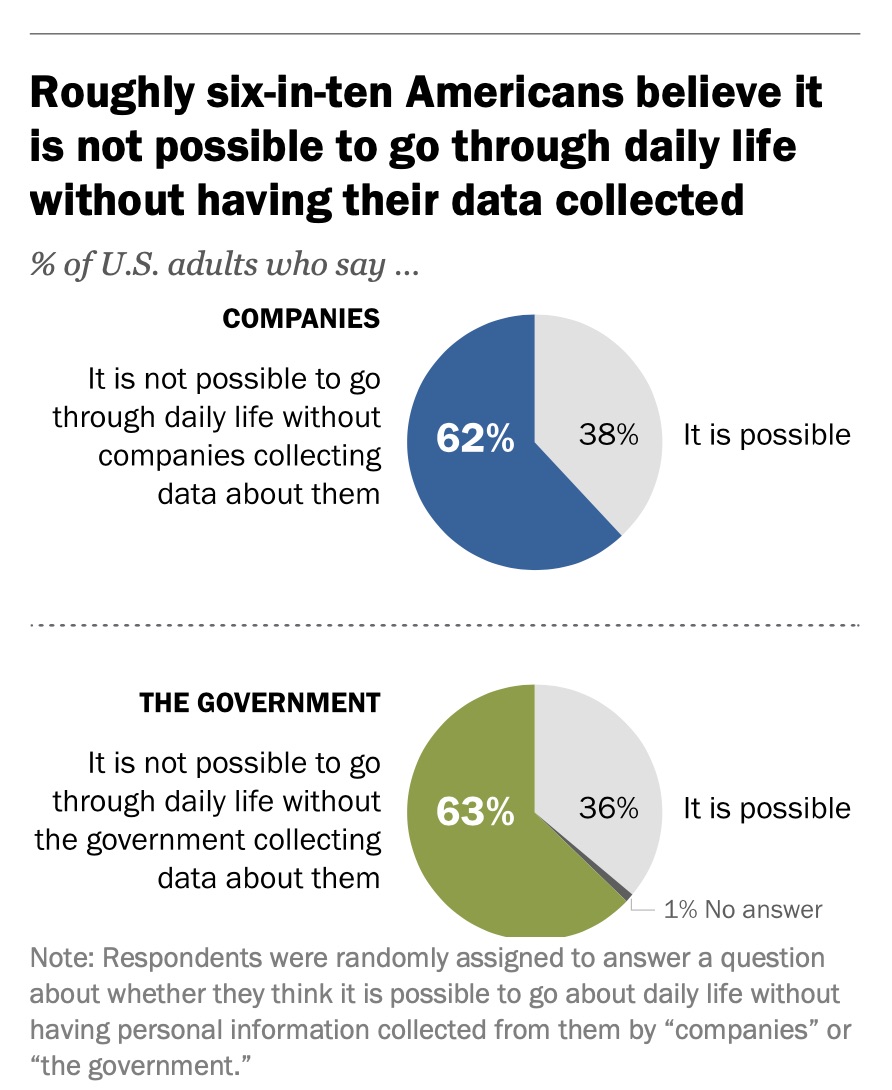With each passing year, more and more companies — and governments— are tracking us for a wide range of reasons. Not surprisingly, six in 10 U.S. adults surveyed last June reported feeling like they’re being watched all the time.
“They are not convinced that the benefits of tracking outweigh the risks of tracking, and they are feeling that they don’t have very much control over what is happening to them,” said Lee Rainie, director of internet and technology research at Pew Research Center.
The online survey of 4,272 people also found that distress over the lack of data privacy is bi-partisan.
“There aren’t dramatic differences between Republicans and Democrats,” Rainie said. “That’s a big story in a time when much of the rest of culture and politics has become polarized.”

That said, there is widespread disagreement about how government could or should address the problem. This survey did not ask about specific regulatory responses ranging from the conceptual, like establishing a new federal agency proposed by Silicon Valley Congresswomen Zoe Lofgren and Anna Eshoo, to the already enacted, like the California Consumer Privacy Act that takes effect Jan. 1, 2020.



